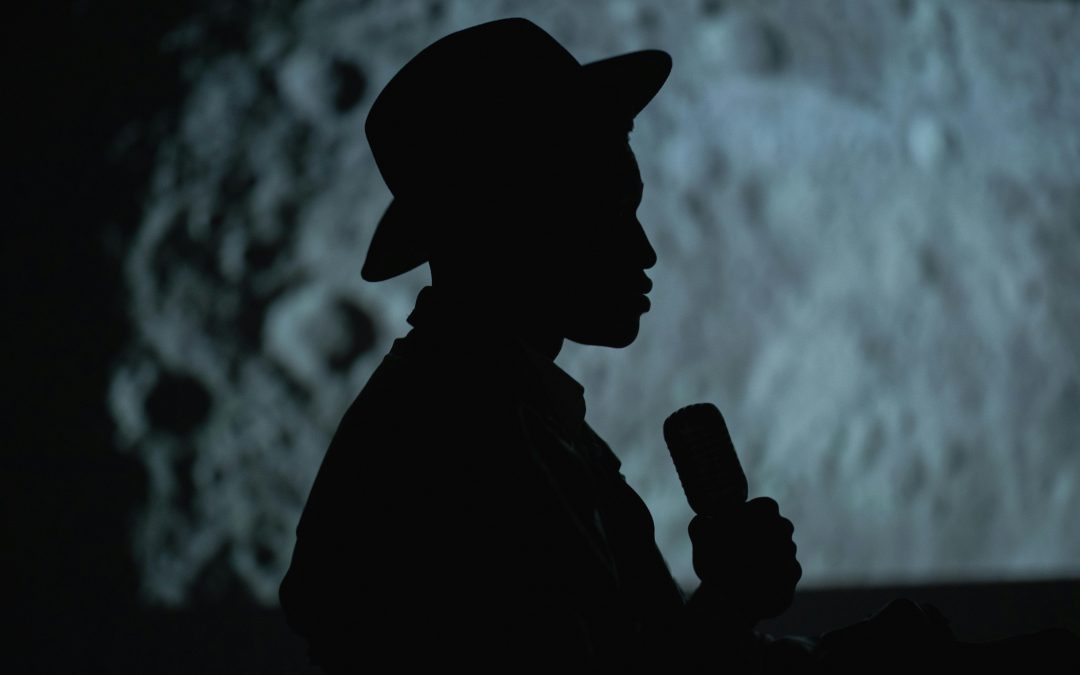Introduction
Have you ever felt that traditional theatre sometimes falls short in expressing the full range of human emotions? Or that poetry readings can lack the visual impact to truly captivate an audience? Many artists and art lovers face this dilemma, yearning for a more powerful and inclusive form of expression.
Imagine a world where the raw emotion of spoken word merges seamlessly with the visual drama of theatre. A place where Caribbean rhythms dance with London’s urban beats, creating a unique tapestry of sound and movement. This is the exciting realm of interdisciplinary storytelling, where boundaries blur and new art forms emerge.
In this blog post, we’ll explore how spoken word theatre and poetic gig theatre are revolutionizing the performance landscape. We’ll dive into the vibrant world of experimental techniques that push the limits of traditional art forms. From the stage to the screen, we’ll see how visual storytelling is evolving to reach wider audiences.
Get ready to discover how global majority voices are finding new platforms for expression, and how the rhythm of language is crafting unforgettable dialogues. We’ll look at immersive experiences that pull audiences into the heart of the story, and peek into the future of performance art.
Join me on this journey as we explore the thrilling intersection of theatre and poetry in performance. It’s time to blur the lines and embrace a new era of artistic expression!
The Evolution of Spoken Word Theatre
Spoken word theatre has come a long way, blending the power of poetry with the magic of live performance. In the early days, poets like the Liverpool trio filled big venues with their relatable, funny verses. But it didn’t stop there. The 1970s saw the rise of dub poetry, bringing Caribbean rhythms to the UK stage. Poets like Benjamin Zephaniah used this style to talk about important social issues.
As time went on, spoken word theatre kept changing. The punk era brought a new energy, with poets performing alongside rock bands. This mix of styles opened doors for more experiments. Soon, theatre groups started offering workshops in schools, helping young people find their voice.
Today, spoken word theatre is everywhere in London. You can catch shows in fancy halls or cozy clubs. It’s not just about listening anymore – it’s about feeling and being part of the story. This art form has become a platform for all kinds of voices, tackling everything from personal stories to big world issues.
The best part? Spoken word theatre keeps evolving. It’s picking up new tricks from social media and mixing with other art forms. Whether you’re into traditional poetry or cutting-edge performance, there’s something for everyone in this exciting world where words come to life on stage.
Bridging Cultures: Caribbean Influences in London’s Art Scene
London’s art world has been forever changed by the vibrant colors and rhythms of the Caribbean. Since the 1960s, Caribbean artists have been painting the city with their unique cultural brush. Take a walk through Tate Britain, and you’ll see works by artists like Ronald Moody and Aubrey Williams, who brought a fresh perspective to British art. Their art tells stories of identity, community, and the journey from island to big city.
But it’s not just about paintings on walls. Caribbean influence flows through London’s poetry and theatre scenes too. Dub poets like Benjamin Zephaniah have been dropping beats and truths since the 1970s. Their words dance to island rhythms while tackling tough topics like racism and belonging. Today, you might catch a show that blends Caribbean folklore with London street style, creating something entirely new and exciting.
This mix of cultures isn’t just about the past – it’s shaping London’s future too. Young artists with Caribbean roots are using their art to talk about things like climate change and what it means to be British today. From the Notting Hill Carnival to cutting-edge galleries, Caribbean-British art is everywhere in London, adding a splash of tropical heat to the city’s creative scene.
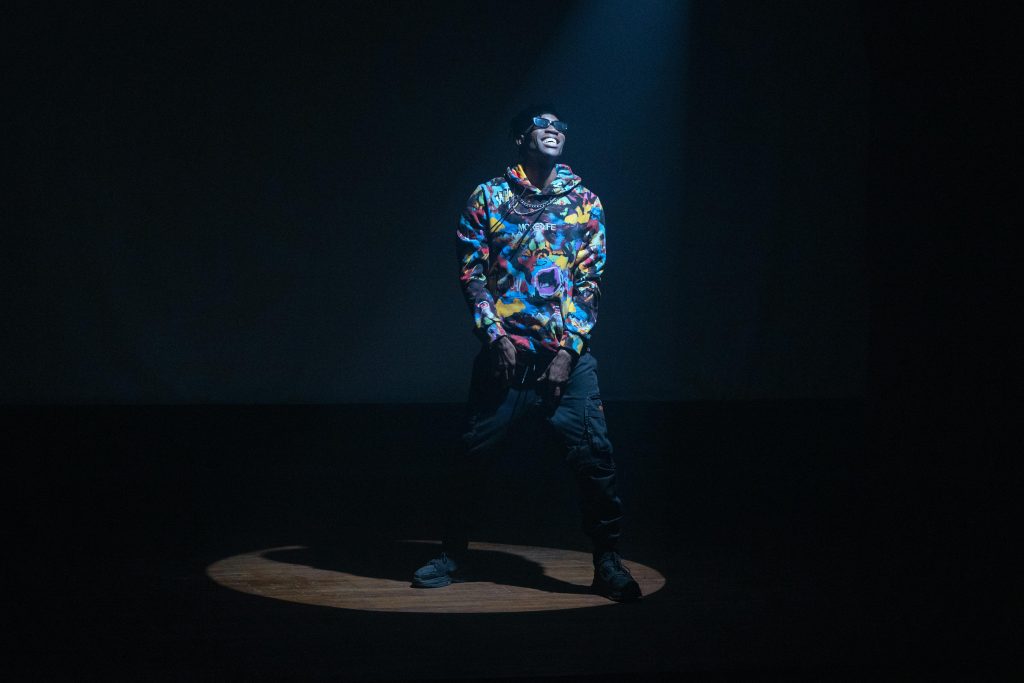
The Power of Poetic Gig Theatre
Imagine a night out where poetry meets concert, and you’re part of the show. That’s the magic of poetic gig theatre, a new art form taking London by storm. It’s not your typical poetry reading or play – it’s a mash-up of spoken word, live music, and drama that gets the audience involved.
In places like the Southbank Centre, hundreds of people gather each month for events like Out-Spoken Live. Here, poets don’t just recite – they perform, backed by musicians, creating a vibe that’s more concert than classroom. But it’s not all about big venues. You might find yourself in a cozy bar, where the line between performer and audience blurs, and everyone’s part of the story.
What makes poetic gig theatre special is its power to tackle big issues in a way that feels personal. Artists use this form to talk about everything from love and identity to politics and social change. It’s a space where different cultures meet and new voices are heard. Whether you’re into hip-hop, classical poetry, or something in between, there’s a poetic gig out there for you. This new art form is changing how we think about poetry and performance, one gig at a time.
Breaking Boundaries: Experimental Performance Techniques
London’s poetry scene is buzzing with new and exciting ways to perform. Poets aren’t just standing on stage reading anymore – they’re creating whole experiences! Imagine going to a poetry show that feels like a concert, where you can join in and be part of the story. That’s what poetic gig theatre is all about. Some poets are even turning their words into huge art installations, like walking through a poem instead of just hearing it. And it’s not just words anymore. Poets are mixing in music, dance, and even digital stuff to make their art pop. They’re using cool writing tricks too, like letting chance decide what words come next. Some are even using virtual reality to take you inside their poems! It’s all about finding fresh ways to connect with people and make poetry feel alive and exciting for everyone.
Visual Storytelling: From Stage to Screen
Poetry is jumping off the stage and onto our screens in London, and it’s pretty amazing to see. Imagine your favorite play turned into a movie, but with all the cool parts of being in a theatre kept in. That’s what’s happening with some poetry shows. They’re taking powerful stories, like one about soldiers coming home, and making them into films that keep the beauty of poetic words. Some poets are getting really creative, making huge art displays where you can walk through their poems like you’re in a gallery. It’s not always easy – some worry that putting everything on screen might mean fewer people come to live shows. But it’s also opening up new ways for people to enjoy poetry and theatre. London’s mix of old theatre traditions and new film tricks makes it the perfect place for this kind of cool experiment. It’s all about finding new ways to tell stories that make us feel something special.
Amplifying Global Majority Voices Through Art
London’s poetry scene is becoming a powerful megaphone for voices from all over the world. At places like the Southbank Centre, hundreds of people come to hear poets from African, Asian, Latin American, and Arab backgrounds share their stories. It’s not just about listening – it’s about celebrating different cultures and talking about important stuff like belonging and fairness. Poets like Benjamin Zephaniah and Warsan Shire are becoming big names, inspiring lots of young writers. These poets aren’t just using English – they’re mixing in languages from their families, making their performances super colorful and rich. Some are even adding music or dance to their poetry. The best part? This is changing London’s whole art world, bringing in new ideas and making poetry events look more like the city itself – full of different faces and stories. There’s still work to do to make sure everyone gets a fair chance to be heard, but London’s poetry scene is definitely getting louder and more exciting because of all these global voices.
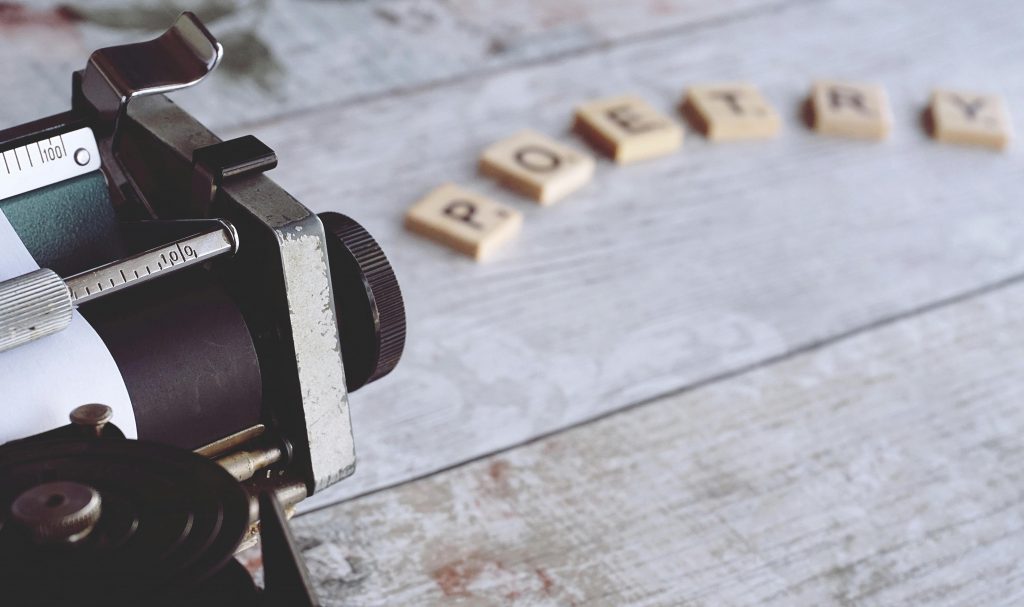
The Rhythm of Language: Crafting Lyrical Dialogues
London’s poetry scene is alive with rhythm and melody. Poets are finding new ways to make their words sing, turning performances into musical experiences. At places like Out-Spoken Live, hundreds of people come to hear poets blend words with beats. Some artists are even turning poems into huge art installations you can walk through, mixing words with street art vibes. It’s not just about English anymore – poets are using languages from all over the world, making their shows a real London mix. A new style called poetic gig theatre is popping up too, where poetry feels more like a concert. If you want to learn these cool tricks, there are workshops all over the city. Some poets are borrowing ideas from actors to make their words feel more real. And it’s not just on stage – poets are using social media and even virtual reality to share their art. They’re talking about all sorts of things, from where they come from to big issues in the world. It’s an exciting time for poetry in London, with so many new ways to play with words and rhythms.
Immersive Experiences: Engaging Audiences in New Ways
Poetry in London isn’t just about sitting and listening anymore – it’s about jumping in and being part of the show! Some poets are creating huge art displays where you can wander around and discover poems like you’re on a treasure hunt. Others are performing in quirky places that make you feel like you’re in on a secret. At some shows, you might even end up being part of the performance! Imagine a poem that’s not just words, but strange sounds that make you feel things you can’t explain. Or picture a poetry night that’s also a music concert and an art show all rolled into one. If you can’t make it in person, don’t worry – some poets are using cool tech like virtual reality to bring their poems to life online. These new ways of sharing poetry are trying to make everyone feel welcome and excited about words, no matter who you are or where you’re from.
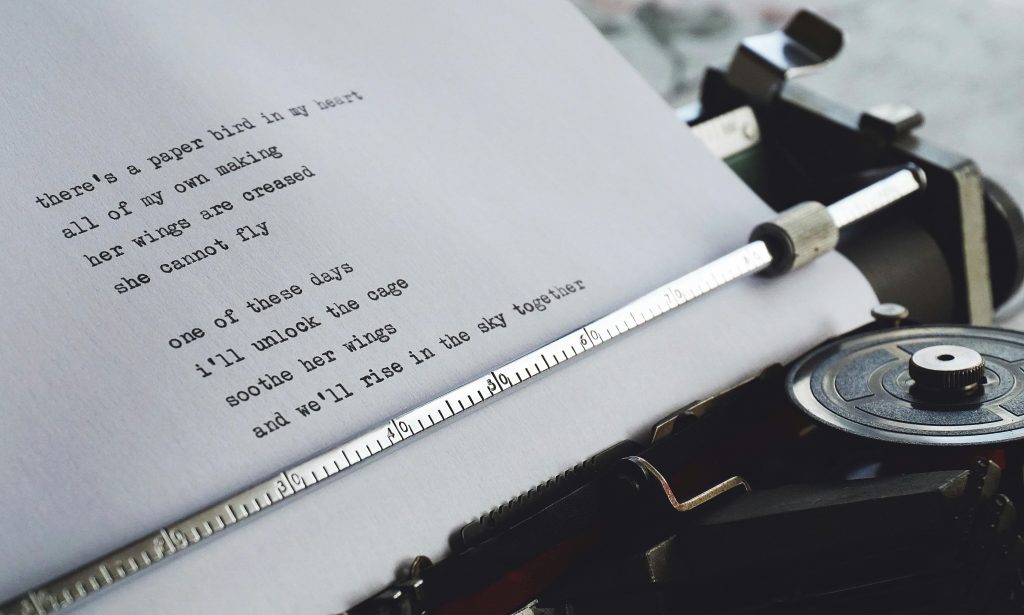
The Future of Interdisciplinary Performance Art
Get ready for poetry like you’ve never seen before! In London, poets are teaming up with all kinds of artists to create wild new shows. Imagine poems that come to life as giant art pieces you can walk through, or poetry nights that feel more like rock concerts. Some poets are even using virtual reality to take you inside their imagination. It’s not just about entertainment – these artists are tackling big issues and trying to make a difference in the world. You might find poetry popping up in unexpected places, from old factories to community centers. And it’s not just for Londoners – thanks to the internet, poets here are connecting with people all around the globe. As we look to the future, we can expect even more mixing of different art forms, cooler technology, and a focus on bringing communities together. Poetry in London is breaking all the rules, and it’s exciting to think about what might come next!
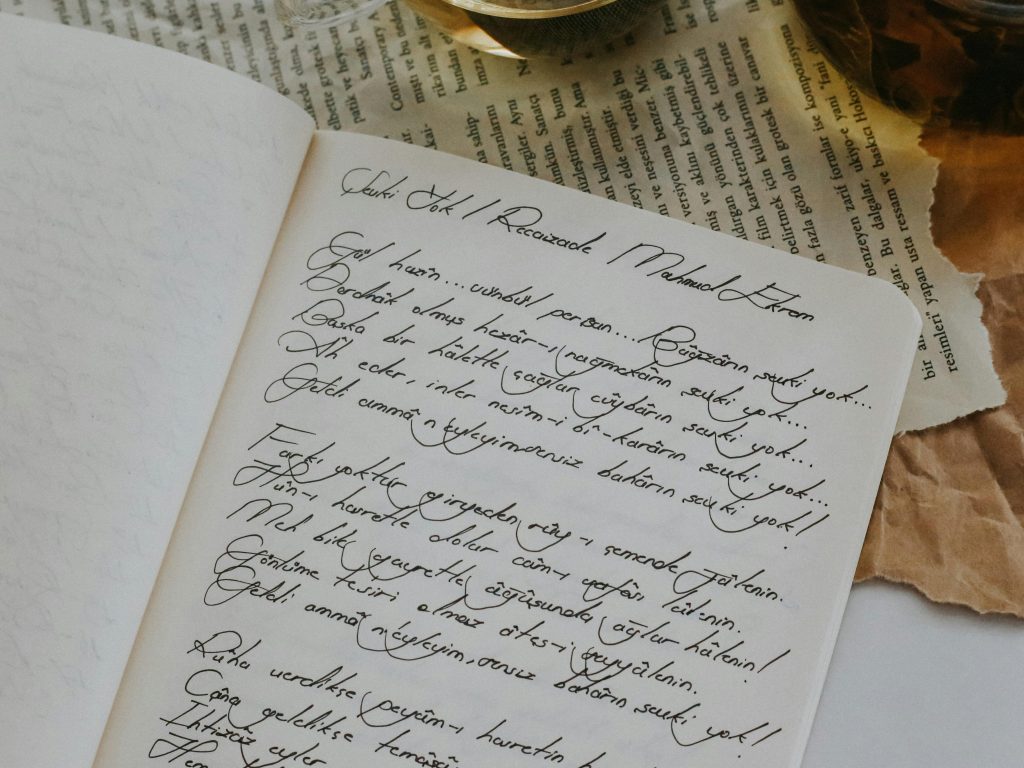
Conclusion
The world of poetry and theatre in London is changing in exciting ways. It’s a great time to dive in and experience these new forms of art. Whether you’re a fan of traditional poetry or looking for something totally new, there’s something out there for you. Why not check out a poetic gig theatre show or explore a poetry installation? You might discover a whole new way to enjoy words and stories. Don’t be afraid to mix things up and try different styles. The artists are pushing boundaries, and you can too. Remember, art is for everyone, so jump in and see what speaks to you. If you want to know more about any of these new art forms or need help finding shows, feel free to reach out. Let’s keep blurring those lines and see where creativity takes us!
FAQs
1. What is poetic gig theatre?
Poetic gig theatre is an innovative art form that blends spoken word poetry with live music and dramatic performance. Unlike traditional poetry readings, poetic gig theatre creates a dynamic and immersive experience by incorporating elements of concerts and interactive theatre. Audiences are not just passive listeners; they become part of the story, engaging with performers in a vibrant and energetic setting. This fusion allows poets to explore a wider range of emotions and themes, making each performance unique and captivating.
2. How can I find spoken word events in London?
Finding spoken word events in London is easier than ever with a variety of resources at your fingertips. You can start by checking out renowned venues like the Southbank Centre, which hosts popular events such as Out-Spoken Live. Additionally, websites like Eventbrite and Meetup regularly list upcoming poetry and spoken word performances. Social media platforms, especially Instagram and Facebook, are great for following local poets and theatre groups who often announce their events there. Don’t forget to explore community boards and local art hubs, as they frequently feature information about intimate gatherings and underground performances.
3. Are there workshops for people who want to try performance poetry?
Absolutely! London offers a plethora of workshops for aspiring performance poets. Many theatre groups and cultural centers provide classes that cover various aspects of performance poetry, including writing techniques, stage presence, and integrating multimedia elements. Institutions like the Southbank Centre and local poetry cafes often host regular workshops led by experienced poets and performers. Additionally, schools and community organizations frequently organize sessions to help individuals of all ages find their voice and develop their skills in a supportive environment.
4. What’s the difference between traditional poetry readings and these new forms?
Traditional poetry readings typically focus on the poet reciting their work in a quiet, contemplative setting, allowing the audience to listen and reflect. In contrast, new forms like spoken word theatre and poetic gig theatre transform poetry into a multi-sensory experience. These performances incorporate live music, dramatic storytelling, visual art, and audience interaction, creating a more engaging and dynamic atmosphere. The emphasis shifts from merely listening to actively experiencing the poem through movement, sound, and sometimes even participation, making the art form more accessible and impactful.
5. Can I enjoy these performances if I don’t speak multiple languages?
Yes, you can thoroughly enjoy these performances even if you don’t speak multiple languages. While London’s poetry scene celebrates linguistic diversity and often includes performances in various languages, many artists incorporate visual storytelling, music, and universal themes that transcend language barriers. Additionally, translations or bilingual performances are sometimes provided to ensure that all audience members can connect with the content. The rich blend of cultures enhances the overall experience, making it accessible and enjoyable for everyone, regardless of their language proficiency.
6. Are there age restrictions for most poetry events in London?
Most poetry events in London are open to audiences of all ages, creating inclusive environments where everyone can appreciate the art form. However, some performances, especially those that tackle mature or sensitive topics, might have age recommendations or restrictions to ensure appropriateness for younger audiences. It’s always a good idea to check the event details or contact the organizers if you’re unsure. Additionally, there are family-friendly poetry workshops and performances specifically designed for children and teenagers, fostering a love for poetry from an early age.
7. How can technology enhance my poetry experience?
Technology plays a significant role in enhancing poetry experiences by introducing innovative ways to engage with the art form. Virtual reality (VR) can immerse you in a poet’s world, allowing you to explore their work in a three-dimensional space. Digital art installations transform poems into interactive exhibits that you can walk through and interact with. Live streaming and social media platforms enable real-time interaction with performers, broadening access to audiences worldwide. Additionally, multimedia presentations that combine video, sound, and lighting effects can add depth and dimension to traditional performances, making poetry more vivid and memorable.
8. Are there opportunities for new poets to perform in London?
Yes, London is a thriving hub for new poets looking to showcase their talent. Numerous open mic nights, poetry slams, and collaborative events provide platforms for emerging voices to perform and gain exposure. Venues like the Southbank Centre, Camden Arts Centre, and various local cafes regularly host events that welcome new poets. Additionally, organizations and poetry collectives often organize showcases and competitions aimed at discovering and promoting fresh talent. These opportunities not only allow poets to perform but also to network with established artists and receive valuable feedback to hone their craft.
9. What should I expect at my first immersive poetry event?
At your first immersive poetry event, you can expect a departure from traditional passive listening. These events are designed to engage all your senses and often involve interactive elements. You might find yourself moving through different spaces, each dedicated to a part of the poem, with visual art, music, and lighting enhancing the narrative. Performers may invite audience participation, encouraging you to contribute to the storytelling or become part of the performance itself. The atmosphere is typically vibrant and energetic, creating a sense of community and connection as you experience the poem in a multi-dimensional way.
10. How is Caribbean culture influencing London’s poetry scene?
Caribbean culture has had a profound and lasting impact on London’s poetry scene, enriching it with vibrant rhythms, storytelling traditions, and themes of identity and community. Dub poetry, pioneered by artists like Benjamin Zephaniah, blends Caribbean musical influences with poetic expression to address social and political issues. This fusion has introduced dynamic performance styles that incorporate elements like reggae beats and spoken word, creating a unique and powerful form of artistic expression. Additionally, contemporary Caribbean-British poets continue to draw on their heritage, infusing their work with diverse cultural perspectives and contributing to a more inclusive and multifaceted poetry landscape in London.

